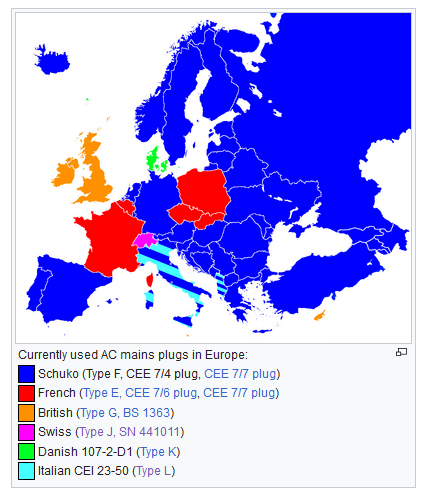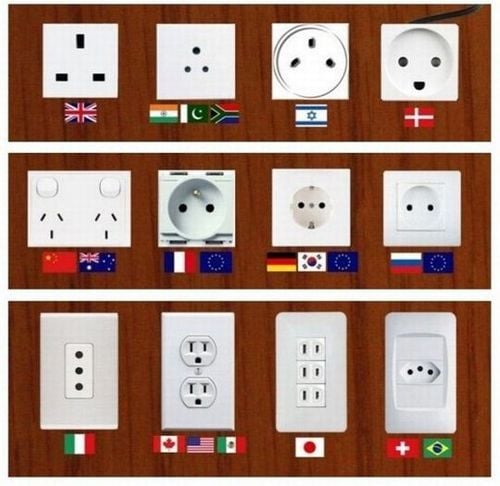The holes are only for manufacturability.
I’m not American, but I’ve lived a few years in the US. I find it very interesting that the US invented the electric infrastructure that we use today, but they really screwed up a few things. Firstly, the connectors are far too unsafe. They are flimsy and have no protection from electrocution. Secondly, by using 120V as the main voltage, you need more current to do the same amount of work as a 240V system. Thay means thicker wires, more stress on the plugs, and greater fire hazards.
Shuko plugs FTW
I feel like the US has a very strong resistance to change regarding standards.
The 110v for example used to be the norme in France, but they changed it to 220v in the 50’ and then 230v in the 90’.
Same thing for the plugs, the paper size, the measurement system …
I think “US doesn’t use the metric system” is really overblown. Sure some common things like miles and weights and cooking that people use every day are still done with standard units. But you could say that about many other countries that are “officially” on the metric system. You can’t really force people to stop using units they’re familiar with. Any product I can think of in America is required to have both metric and standard units labeling it. Technical fields like science and medicine don’t touch standard units, would be ridiculous. All metric. If you tell your doctor your weight in lbs it’s instantly converted to kg and that’s what’s used in the system (dosing is done in mg per kg bodyweight often). Every kid in America learns how to use the metric system in school. Construction is probably the big place where it still gets iffy, but even then you can easily get metric or standard bits and things like that. Like what do people want to say we’ve “converted?” Slap all the current cooking/measuring cups out of people’s hands that say both mls and cups, saying no how dare you use cups to measure out the water for your recipe, here have a measuring cup with only mL labeled instead, you’re welcome.
Also ripping out and replacing the entire electrical system of every building in the United States, and scrapping every 120v electrical appliance in the entire country, seems like it would be horrifically expensive and wasteful for some very minor benefits. Maybe a switch could have been made early on in the development of the electrical system, but that ship has sailed. And you can wire up outlets in America for 240v plugs too, the breakers let you do both. So if you need more current for your clothes drier or another large appliance for instance it can be done.
Converting to metric would mean using it in normal speech. You know, like in most civilized countries.
“What’s your height?”
“187 centimeters.”
Type J > Shuko
Type J is safe and a better implementation. I don’t know why the EU didn’t choose type J as a standard.
It cant plug both ways
yeah but it looks like a funny face!
I didn’t know that schuko plugs are the norm for most Europe countries, I thought it was a German thing

https://en.wikipedia.org/wiki/Schuko
I always thought the holes were there for OSHA lockout/tagout locks.
They are a byproduct of the manufacturing process. There’s a Technology Connections video about it that I’m too lazy to lookup on my phone.
Americans plugs are very strange







